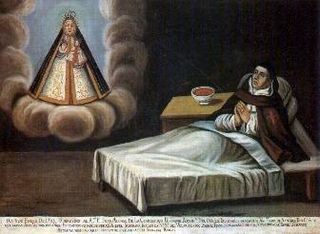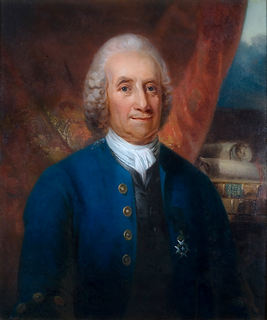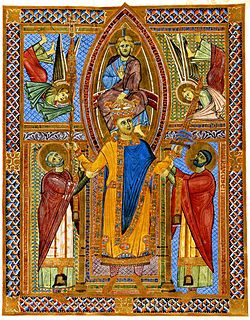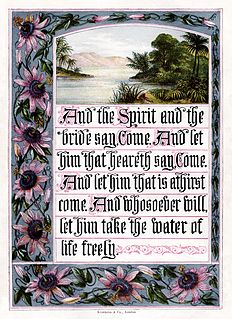
Simony is the act of selling church offices and roles. It is named after Simon Magus, who is described in the Acts of the Apostles 8:9–24 as having offered two disciples of Jesus, Peter and John, payment in exchange for their empowering him to impart the power of the Holy Spirit to anyone on whom he would place his hands. The term extends to other forms of trafficking for money in "spiritual things." Simony was one of the important issues during the Investiture Controversy.

Unitarian Universalism (UU) is a liberal religion characterized by a "free and responsible search for truth and meaning". Unitarian Universalists assert no creed, but instead are unified by their shared search for spiritual growth. As such, their congregations include many atheists, agnostics, and theists within their membership. The roots of Unitarian Universalism lie in liberal Christianity, specifically Unitarianism and universalism. Unitarian Universalists state that from these traditions comes a deep regard for intellectual freedom and inclusive love. Congregations and members seek inspiration and derive insight from all major world religions.

The views of religions and religious believers range widely, from giving sex and sexuality a rather negative connotation to believing that sex is the highest expression of the divine. Some religions distinguish between sexual activities that are practiced for biological reproduction, and other activities practiced for sexual pleasure, as immoral.

Puja or Pooja (IAST: pūjā; Devanagari: पूजा; IPA: [puːʤɑː]; is a prayer ritual performed by Hindus of devotional worship to one or more deities, or to host and honor a guest, or one to spiritually celebrate an event. It may honour or celebrate the presence of special guest, or their memories after they die. The word "pūjā" is Sanskrit, and means reverence, honour, homage, adoration, and worship. Puja, the loving offering of light, flowers, and water or food to the divine, is the essential ritual of Hinduism. For the worshipper, the divine is visible in the image, and the divinity sees the worshipper. The interaction between human and deity, between human and guru, is called darshan, seeing..

A godparent, in many denominations of Christianity, is someone who bears witness to a child's baptism and then aids in their catechesis, as well as their lifelong spiritual formation. In the past, in some countries, the role carried some legal obligations as well as religious responsibilities. In both religious and civil views, a godparent tends to be an individual chosen by the parents to take an interest in the child's upbringing and personal development, to offer mentorship or claim legal guardianship of the child should anything happen to the parents.
A parody religion or mock religion is a belief system that challenges spiritual convictions of others, often through humor, satire, or burlesque. Often created to achieve a specific purpose related to another belief system, a parody religion can be a parody of several religions, sects, gurus, cults, or new religious movements at the same time or even a parody of no particular religion, instead parodying the concept of religious belief itself. In some parody religions, the emphasis is on having fun; the faith may be a convenient excuse for pleasant social interaction among the like-minded.

The Blessed John van Ruysbroeck was one of the Flemish mystics. Some of his main literary works include The Kingdom of the Divine Lovers, The Twelve Beguines, The Spiritual Espousals, A Mirror of Eternal Blessedness, The Little Book of Enlightenment, and The Sparkling Stone. Some of his letters also survive, as well as several short sayings. He wrote in the Dutch vernacular, the language of the common people of the Low Countries, rather than in Latin, the language of the Church liturgy and official texts, in order to reach a wider audience.

A soulmate is a person with whom one has a feeling of deep or natural affinity. This may involve similarity, love, romance, platonic relationships, comfort, intimacy, sexuality, sexual activity, spirituality, compatibility and trust.
Josephite marriage, also known as spiritual marriage, chaste marriage, and continent marriage, is a religiously motivated practice in which a man and a woman live intimately without engaging in sexual activity.
Spiritual Assembly is a term given by `Abdu'l-Bahá to refer to elected councils that govern the Bahá'í Faith. Because the Bahá'í Faith has no clergy, they carry out the affairs of the community. In addition to existing at the local level, there are national Spiritual Assemblies.

Omamori are Japanese amulets commonly sold at Shinto shrines and Buddhist temples, dedicated to particular Shinto kami as well as Buddhist figures, and are said to provide various forms of luck or protection.

A Hindu wedding is Vivaha and the wedding ceremony is called Vivaah Sanskar in North India and Kalyanam (generally) in South India. Hindus attach a great deal of importance to marriage. The wedding ceremonies are very colourful, and celebrations may extend for several days. The bride's and groom's home—entrance, doors, wall, floor, roof—are sometimes decorated with colors, balloons, and other decorations.

Spiritual wifery is a term first used in America by the Immortalists in and near the Blackstone Valley of Rhode Island and Massachusetts in the 1740s. The term describes the idea that certain people are divinely destined to meet and share their love after a receiving a spiritual confirmation, and regardless of previous civil marital bonds. Its history in Europe among various Christian primitivistic movements has been well documented. The followers of Jacob Cochran as early as 1818 used "spiritual wifery" to describe their religious doctrine of free love. Often confused with polygamy, spiritual wifery among the Cochranites was the practice in which communal mates were temporarily assigned and reassigned, either by personal preference or religious authority.

Heaven and Hell is the common English title of a book written by Emanuel Swedenborg in Latin, published in 1758. The full title is Heaven and its Wonders and Hell From Things Heard and Seen, or, in Latin: De Caelo et Eius Mirabilibus et de inferno, ex Auditis et Visis. It gives a detailed description of the afterlife, how people live after the death of the physical body. The book owes its appeal to that subject matter.
Martin Luther University College, formerly Waterloo Lutheran Seminary, is a seminary of the Evangelical Lutheran Church in Canada federated with the nondenominational Wilfrid Laurier University, located in Waterloo, Ontario.
The Brahma Kumaris World Spiritual University is a spiritual movement that originated in Hyderabad, Sindh, during the 1930s. The Brahma Kumaris movement was founded by Lekhraj Kripalani. The organisation is affiliated with the United Nations and is known for the prominent role that women play in the movement.
Bahá'í marriage is union of a man and a woman. Its purpose is mainly spiritual and is to foster harmony, fellowship and unity between the two partners. The Bahá'í teachings on marriage call it a fortress for well-being and salvation and place marriage and the family as the foundation of the structure of human society.

The Defender of the Bond, or Defensor Matrimonii in Latin, is a Catholic Church official whose duty is to defend the marriage bond in the procedure prescribed for the hearing of matrimonial causes which involve the validity or nullity of a marriage already contracted.
The New Church is the name for several historically related Christian denominations which developed as a new religious movement, influenced by the writings of scientist and Swedish Lutheran theologian Emanuel Swedenborg (1688–1772). According to Swedenborg, he received a new revelation from Jesus Christ in visions he experienced over a period of at least twenty-five years. He predicted in his writings that God would replace the traditional Christian Church, establishing a New Church which would worship God as Jesus Christ. According to New Church doctrine, each person must cooperate in repentance, reformation, and regeneration.

Women in Buddhism is a topic that can be approached from varied perspectives including those of theology, history, anthropology and feminism. Topical interests include the theological status of women, the treatment of women in Buddhist societies at home and in public, the history of women in Buddhism, and a comparison of the experiences of women across different forms of Buddhism. As in other religions, the experiences of Buddhist women have varied considerably.



















